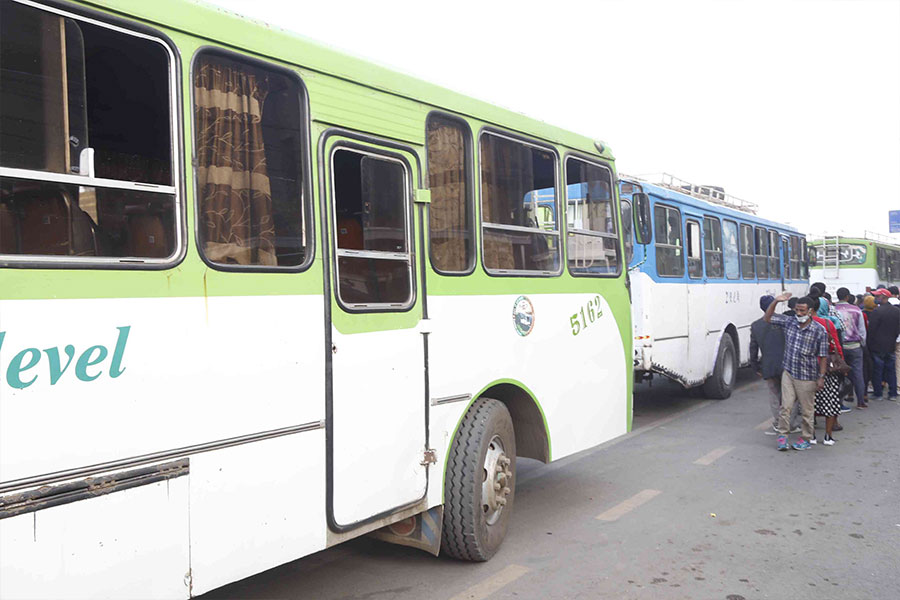
Fortune News | Oct 18,2025
In the quiet drizzle over Addis Abeba’s streets, tax reform is no longer mere policy. It walks, waits in line, and tightens its belt. Roughly 6.9 million salaried workers across the country, accounting for nearly 15pc of the total workforce, are bearing the brunt of a new fiscal order. Many feel that their daily reality is one of eroded purchasing power, stagnant wages, and residual household debt.
Federal officials, touting equity, recently ushered in a revised income tax law, raising the monthly tax-exempt threshold from 600 Br to 2,000 Br. Heralded as progressive, the measure has proven to be more symbolic than substantive for the average worker. The marginal relief fails to shield families from economic attrition driven by high inflation and weak wage growth.
The federal government estimates an annual revenue loss of 38.4 billion Br from the new threshold, which could swell to 70 billion Br if raised to 3,000 Br, representing a fiscal trade-off of only 0.21pc of GDP. However, the burden remains disproportionately skewed.
Private companies are not immune to tax anxieties. Safaricom Ethiopia Plc, despite amassing 6.1 million GSM users and 8.3 million M-PESA subscribers, projects a four-billion-Birr loss and no breakeven until 2026. It has petitioned for relief from the 2.5pc turnover tax, a levy applied even to loss-making firms. Business groups, including the Ethiopian Chamber of Commerce and industrial giants such as East African Holdings, have their representatives arguing that taxing gross rather than net revenue is not only regressive but also potentially unconstitutional.
Equally contentious is the doubling of the tax on savings interest to 10pc. Banking industry leaders warn that this may erode household liquidity and disincentivise formal saving. In a country struggling to deepen financial inclusion, they fear that the policy could reverse gains made in banking the unbanked, pushing households toward informal financial practices.
The tax reform has also extended its reach into the fast-growing digital economy. Freelancers, content creators, cross-border consultants, and satellite service providers now face new obligations. While this broadening of the tax base may appear logical, experts caution that poor policy design, administrative overreach, and procedural opacity could stifle compliance before it gains traction.
According to experts, beneath these technicalities lies a glaring injustice. A salaried worker earning 14,000 Br monthly now pays over 34,000 Br in annual taxes, while an entrepreneur at the same income level owes the state 5,640 Br. This disparity, experts contend, not only undermines fairness but also deters formal employment and long-term capital formation.
Despite these tensions, federal authorities remain committed to increasing the tax-to-GDP ratio from its current near eight percent, one of the lowest globally, to double digits within three years. It is an ambitious target predicated on expanding the tax net and closing compliance gaps. But success may depend less on revisions to brackets than on public trust. With tax morale already fraying under the weight of economic hardship, technocratic solutions may not suffice. From federal boardrooms to cash-strapped municipalities, a quiet consensus is emerging that taxation should first be credible to be sustainable.
PUBLISHED ON
Jul 19,2025 [ VOL
26 , NO
1316]

Fortune News | Oct 18,2025

Radar | Feb 05,2022

Fortune News | Jun 29,2025

Radar | Nov 16,2019

Radar | Aug 11,2024

Fortune News | Jul 17,2022

Commentaries | Aug 10,2024

Agenda | May 29,2021

News Analysis | Mar 23,2024

Money Market Watch | Oct 06,2024

Dec 22 , 2024 . By TIZITA SHEWAFERAW
Charged with transforming colossal state-owned enterprises into modern and competitiv...

Aug 18 , 2024 . By AKSAH ITALO
Although predictable Yonas Zerihun's job in the ride-hailing service is not immune to...

Jul 28 , 2024 . By TIZITA SHEWAFERAW
Unhabitual, perhaps too many, Samuel Gebreyohannes, 38, used to occasionally enjoy a couple of beers at breakfast. However, he recently swit...

Jul 13 , 2024 . By AKSAH ITALO
Investors who rely on tractors, trucks, and field vehicles for commuting, transporting commodities, and f...

Oct 25 , 2025
The regulatory machinery is on overdrive. In only two years, no fewer than 35 new pro...

Oct 18 , 2025
The political establishment, notably the ruling party and its top brass, has become p...

Oct 11 , 2025
Ladislas Farago, a roving Associated Press (AP) correspondent, arrived in Ethiopia in...

Oct 4 , 2025
Eyob Tekalegn (PhD) had been in the Governor's chair for only weeks when, on Septembe...